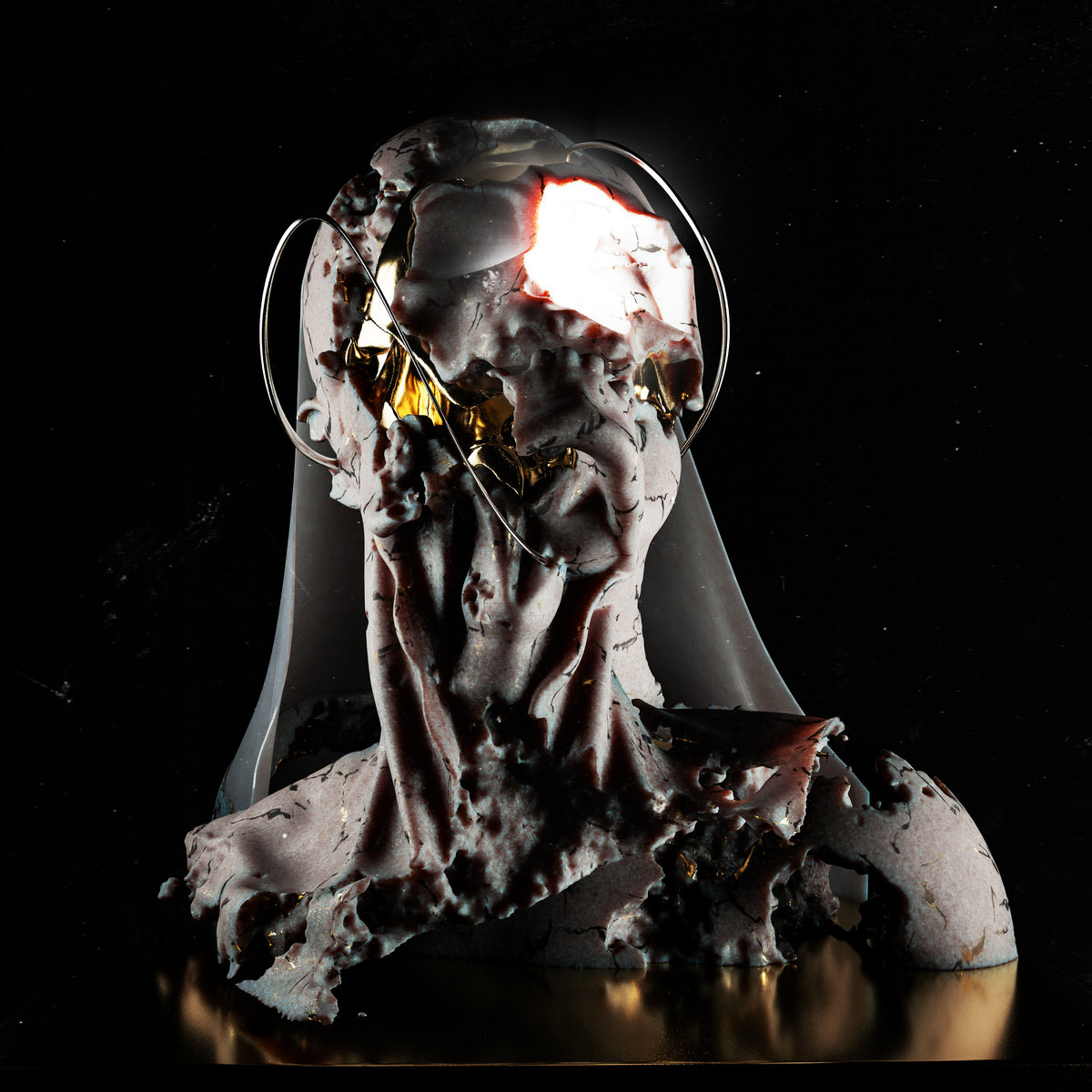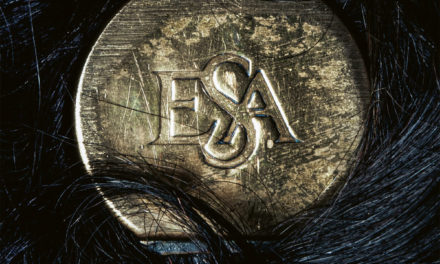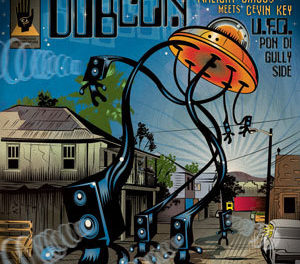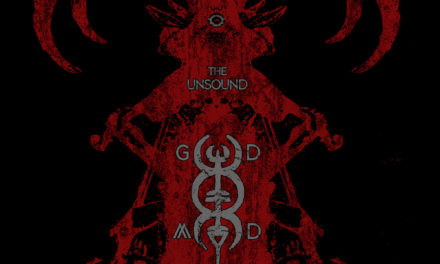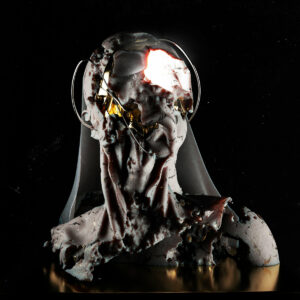
Lana Del Rabies
Strega Beata
Gilgongo Records
Strega Beata, the third LP from performer and producer Sam An as Lana Del Rabies, is the project’s most advanced album sonically, while paradoxically also being its most harrowing and difficult. Where the Phoenix-based artist’s preceding releases have been in the tradition of noise and power electronics based DIY recording, the new LP renders the same static and drones as previous efforts, as well as An’s own defiantly wounded voice, in high definition. The effect is as effective as it is startling, taking the brutish force and sorrow that has always dwelled within Del Rabies’ work and making it inescapably tangible to the listener. To wit, Lana Del Rabies has never sounded so full-bodied and present as on Strega Beata, but that tangibility serves to make things ever so much more difficult to ignore or escape.
While the divebomb drones and bitcrushed feedback which shaped Shadow World are still a major part of Lana Del Rabies’ sound, Strega Beata frames them within a much broader canvas. From the processional, monastic pace of opener “Prayers Of Consequence” onward, Am establishes wide, smokey soundscapes which bring to mind gothic cathedrals and medieval liturgy much more than the cramped, agoraphobic chaos of noise shows. The presentation of Am’s vocals plays a huge part in these ornate and solemn proceedings, with tracks like “Grace The Teacher” and “A Plague” giving as much time to mournful, sustained (yet still slightly distorted) vocals as to their martial beats and deep bass frequencies. When we heard the latter as a pre-album single we wondered if it would be indicative of an overall shift and development in Lana Del Rabies’ sound, and in the context of the full album “A Plague” very much appears to be a keystone.
The complimentary nature of the sonics and subject matter proves to the album’s strength, with every burst of degraded sound or crushing synth acting as an organic extension of the LP’s themes. “Master”‘s mournful outro of piano and choral synths is the natural response to the bludgeoning rhythmics of its climax, which in turn are an outgrowth of the lyrics’ examination of the intersection of authority and maternal succor. Matching design to thematics is of course nothing new, but it is striking how much nuance can be contained in the washes of reverbed static and thudding percussion; “Apocalypse Fatigue” serves as an affecting penultimate statement because the pure exhaustion of Am’s delivery sounds like a response to the blasted soundscape it inhabits, whipping itself into one final frenzy before being dragged under for good under the weight of guilt and anguish. The tiny moments of simple musical grace that manage to manifest between volleys of fraught noise aren’t just earned, they’re fought for and won in the face of what seems like insurmountable and inevitable collapse.
Like we said when we discussed Shadow World, presuming Lana Del Rabies to be yet another noise project using a clever name as a hook is a crucial mistake; the project originated with Am taking a critical perspective on the representation and exploitation of women within the pop world (naming an early pure noise track “It Felt Like A Kiss” is a grim example, and recent covers of both Britney and Tori Amos continue this work). Strega Beata is far less overt in this regard, though plenty of its lyrics hinge upon the same power dynamics and questions of control and identity. On nine minute mid-album showstopper “Mourning”, Am subtly shifts from itemizing individual failures to meditating on the sum total of murder and cruelty in human history. When she settles on the sentiment that “Death makes all things right”, delivered in a resigned yet strangely comforted voice, it no longer seems to matter whether the song is a prayer for self-annihilation or a coming to terms with the temporality of all things. Impressively, in being a more cryptic and possibly personal work than previous LDR releases, Strega Beata feels far more universal. Highly recommended.

